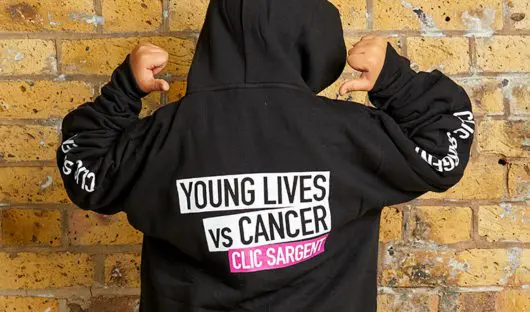Exams while your child is having treatment
If your child has special educational needs due to their diagnosis that means they might be at a disadvantage for tests and exams, it may be possible for special arrangements to be made so that they are still on an equal footing to other pupils.
Access arrangements
If your child has been diagnosed with cancer, they automatically meet the definition of ‘disabled’. This makes it a legal requirement for an awarding body – the exam board – to make sure they provide ‘reasonable adjustments’ for your child if needed. Read more about your child’s educational rights after diagnosis here.
This means your child may be given special arrangements for exams so they’re not at a disadvantage compared to other pupils. These are called Access Arrangements.
Examples of Access Arrangements include:
- extra time to complete the exam
- someone to read (a reader) or write (a scribe) for them
- taking the exam in hospital or in a separate room at school
- supervised rest breaks if your child has fatigue or other side effects of treatment.
If you think your child needs special arrangements for exams due to their diagnosis, you need to make an application to the Joint Council for Qualifications (JQC), which is the governing body for all exam boards in the UK. Any applications need to be made to the JQC well in advance of any exams. You can find guidance on special arrangements from JQC here.
It’s important that you talk to staff and the examinations officer at your child’s school who will be able to discuss this with you and help you make an application if appropriate. You’ll need medical evidence, such as a letter from your child’s consultant explaining the situation.
Special consideration
Your child may also be able to receive what is known as ‘special consideration’. This is a grade adjustment after an exam to reflect an illness or ‘indisposition’ at the time of the exam – for example, if a candidate was having chemotherapy on the day of the exam or immediately before it.
The examinations officer at your child’s school should be fully aware of this and can apply to the exam board on your behalf. As medical evidence will normally need to be written by your child’s hospital consultant, you may need to speak to your treatment team about this. The school will use this to support their application for special consideration.
You can find out more information about special arrangements for tests or exams from Contact.
You can read more about communicating with your child’s school here.
Do you need more information and advice about education? Young Lives vs Cancer has partnered with Contact, the charity for families with disabled children, who can offer specialist advice on a range of issues including education and learning support.
You can find out more about how to get in touch with Contact here.
![]()
You might also like...
My child’s educational rights after diagnosis
What I do need to know about my child's rights when it comes to school and education?
Read more
Communicating with my child’s school
What you should know about communicating with your child's school after diagnosis.
Read more
Contacts for educational advice and support
Find out about useful organisations that offer information, advice and support around educational needs and issues.
Read more
More information and support
Contact
You can find out more information and advice about special arrangements for exams and tests from Contact.
Visit the websiteGet a Young Lives vs Cancer grant
It’s not right that young people and parents have to worry about money when they need to focus on treatment and all that comes with it. So Young Lives vs Cancer gives various grants, right from the moment of diagnosis, to help young people and families cope financially.
Find out more about getting a grantJoin our Facebook group for parents
Share your stories and experiences with other parents. Get advice or share tips to help others, and become part of a supportive community.
Join the groupAre you a cancer dad?
Many dads spend less time in the hospital and don't get the same network of support. Feeling like you have to 'hold the fort' can be isolating and difficult, so it's extra important you have someone to talk to about your challenges.
Join our Mind the Chaps Facebook group for dads